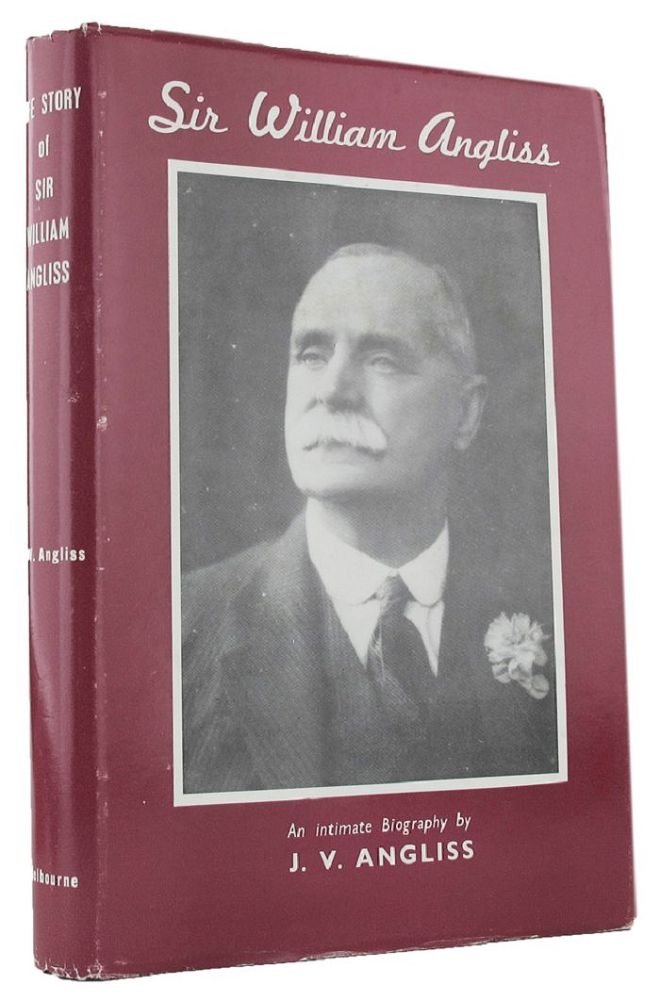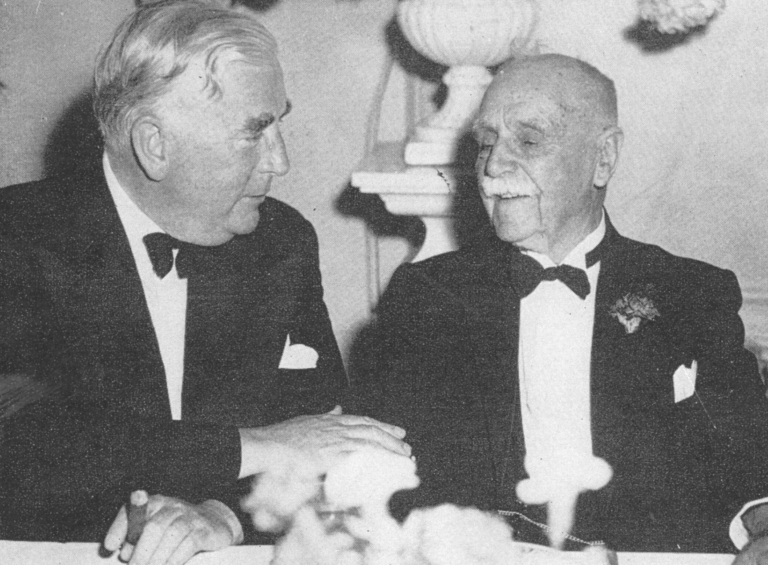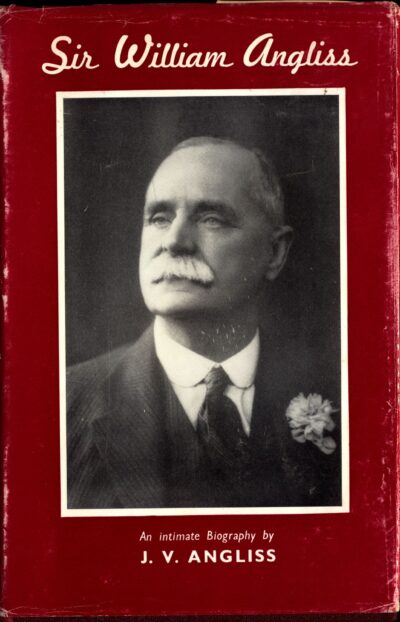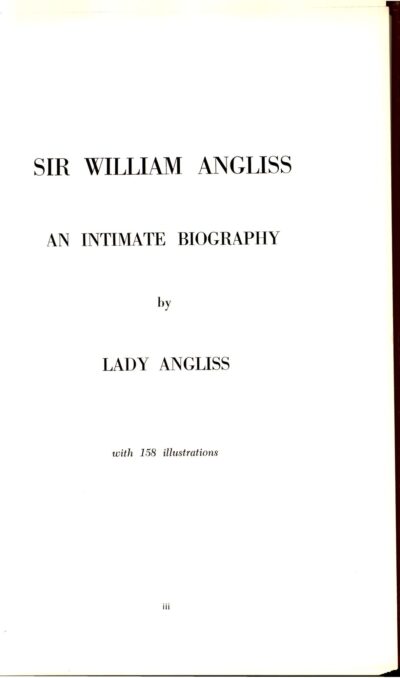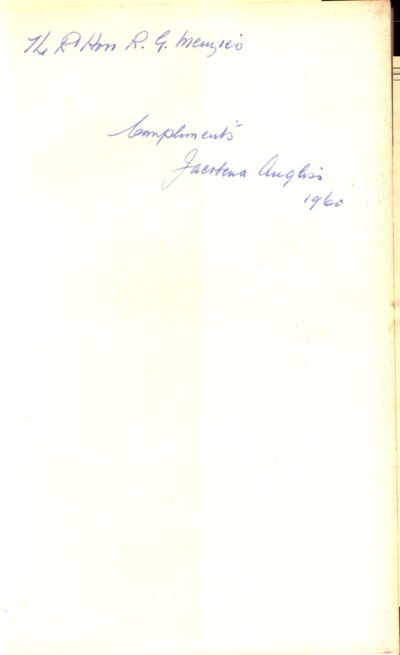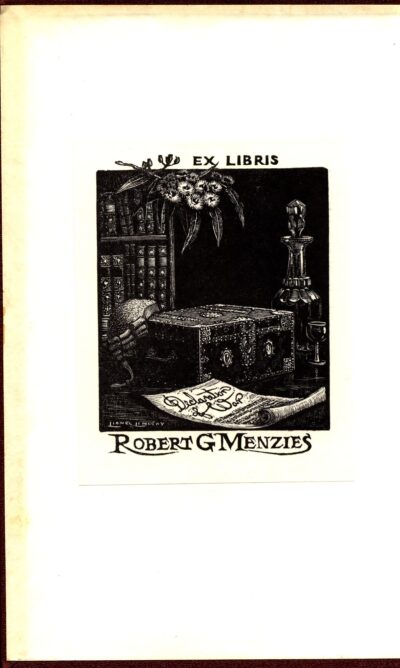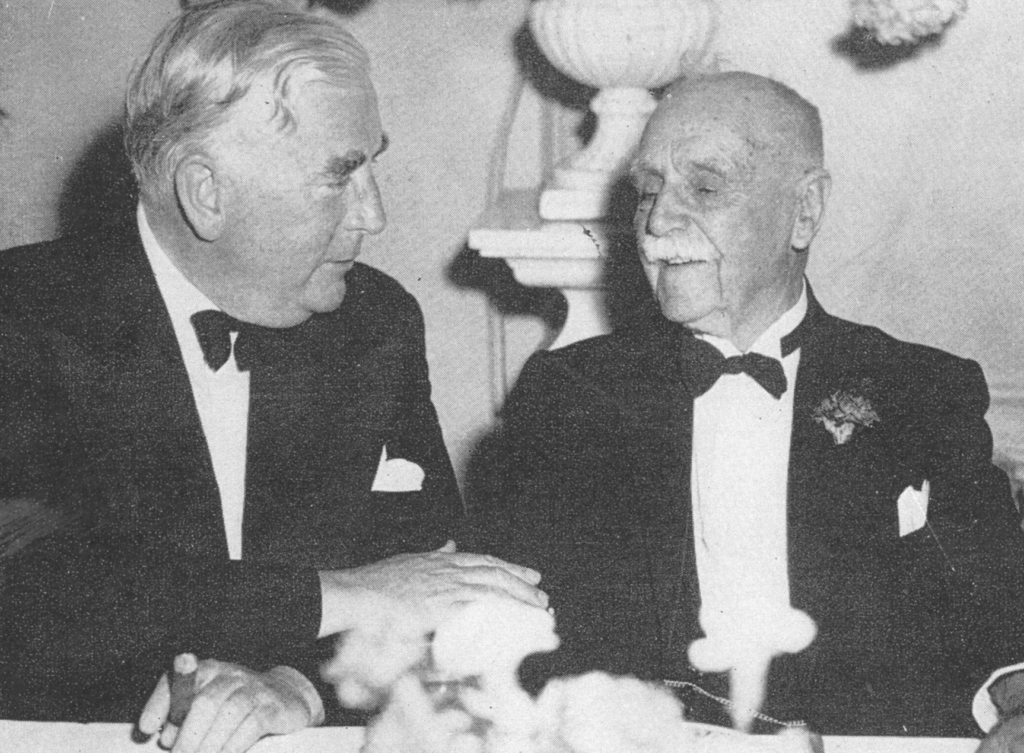Lady J.V. Angliss, Sir William Angliss: An Intimate Biography (1960)
William Charles Angliss was a businessman and philanthropist, who pioneered Australian meat exports and whose charitable foundation continues to pay out grants to worthwhile causes to this day.
Born in Worchester England in 1865 as the son of a tailor, William got a job working in his uncle’s butcher shop in London and embarked on a seemingly modest career path which would lead to unforeseen riches. Migrating to Australia in 1884 and spending time in Rockhampton and Brisbane in search of work, two years later he would scrounge together enough money to establish what became a highly successful butchers in North Carlton, where his sausages became widely famous. Business boomed, and despite the depression of the 1890s Angliss upsized to a more fashionable location on Bourke Street. Seizing highly nascent opportunities, he was soon experimenting with shipping frozen meat first to Western Australia’s goldfields and then to imperial troops fighting in the Boer War.
According to his ADB entry, Angliss showed from ‘the start immense capacity for work, intense dislike of waste, attention to detail, flair for exploiting new products and new markets, willingness to gamble, [and] over the next thirty years he became the dominant figure in Australia’s highly competitive meat export trade.’ The export of frozen meat was a relatively new field opened up by advances in technology, and by the start of World War One Angliss had forged new markets in Britain and come to dominate the industry, buying up vast cattle estates in Queensland, and expanding into New South Wales, South Australia and New Zealand as he struggled to keep up with the immense demand for Australasian meat in the Old World. By the early 1930s it was claimed that his was the largest personally controlled meat enterprise in the British Empire, and Angliss would play a prominent role as a consultant to the Ottawa Imperial Conference of 1932, where Australia obtained preferential tariff arrangements which further boosted meat exports.
Though Angliss’s advancing age forced him to sell his business in 1934, further investments meant that by the 1950s he was reputedly the wealthiest man in Australia. He had a tremendous sense of community responsibility, serving in the Victorian Legislative Council from 1912 until 1952, and spending much of his fortune on a number of philanthropic causes like the Salvation Army, several hospitals and the Boy Scouts. In his later years his favourite hobby was playing quoits with notable people like Donald Bradman and (when available) Menzies.
Menzies knew Angliss intimately from their time in the Legislative Council (where Menzies had first entered politics), and Angliss greatly admired the manner in which Menzies had sacrificed a remunerative career at the Bar for a life of public service. In order to ensure that Menzies could go on serving the nation, when Angliss died in 1957 his will gave the then prime minister an annual stipend of £1000 per year. As The Bulletin reported it, this was ‘one of the most pleasing gifts of all to Victorians who have any knowledge of Menzies…The earnings he lost by his last 20 years of active politics would now provide many times the annuity without effort’.
Menzies for his part respected Angliss as a perfect example of the qualities he associated with the private enterprise that he politically championed: innovation, self-made success which benefitted the whole nation, and giving back to the community which had served him so well. The website of the William Angliss Charitable Fund continues to boast a quote from Menzies describing his relationship with their benefactor:
‘He left an indelible mark upon one of our most significant export industries…
His personal ambitions were few and simple. He was, in fact, one of those who did much for us and sought no headlines in the doing.
It has been my great fortune to know some of the founders of our nation.
Not one of them retains a more lively place in my memory and my affection than Sir William Angliss.’
Written by Angliss’s widow, Sir William Angliss: An Intimate Biography is as the title implies a highly personal account of Angliss’s remarkable life. The author sent it ‘with compliments’ to Menzies, knowing that the recipient cared deeply about the subject matter.
You might also like...
Sign up to our newsletter
Sign up for our monthly newsletter to hear the latest news and receive information about upcoming events.

